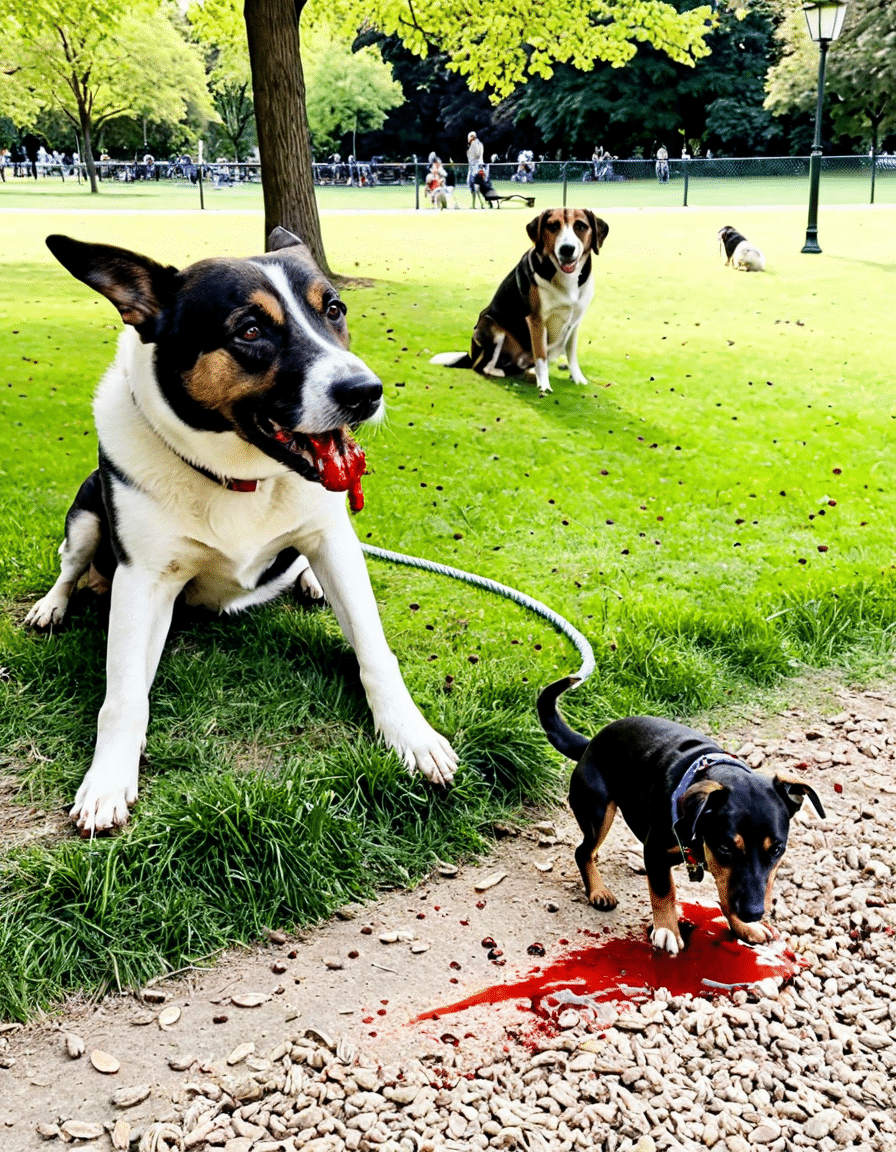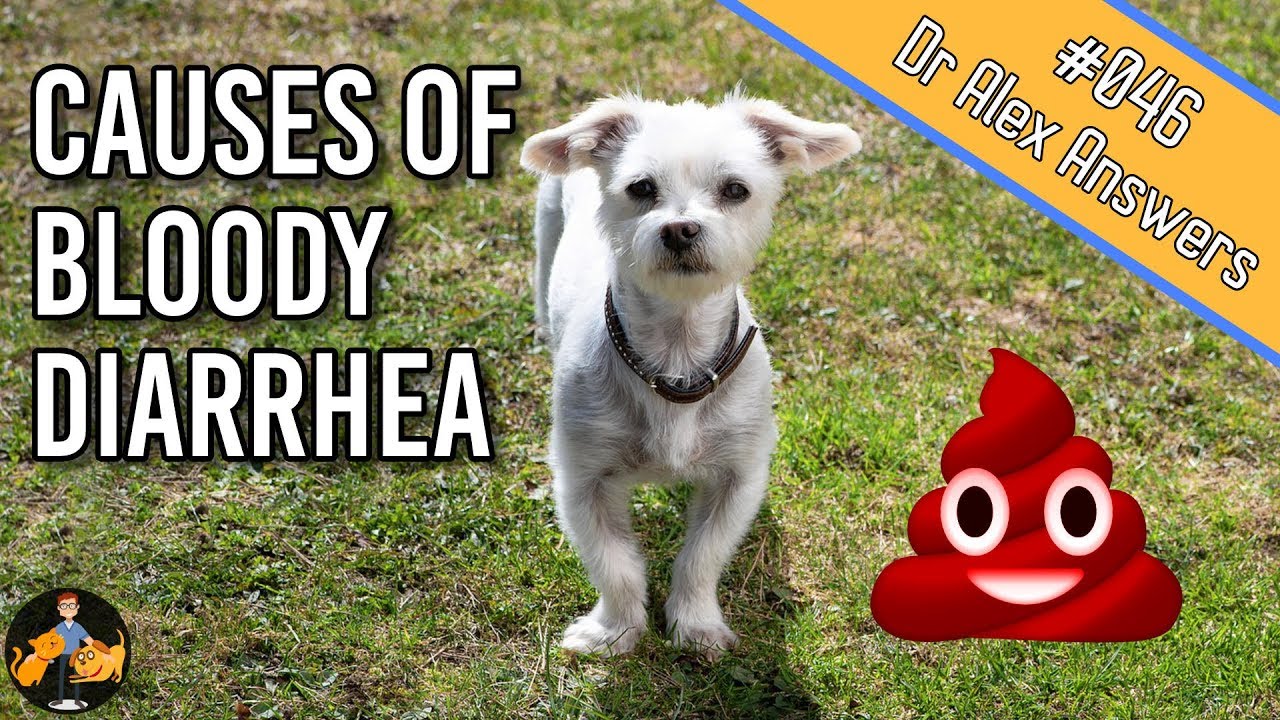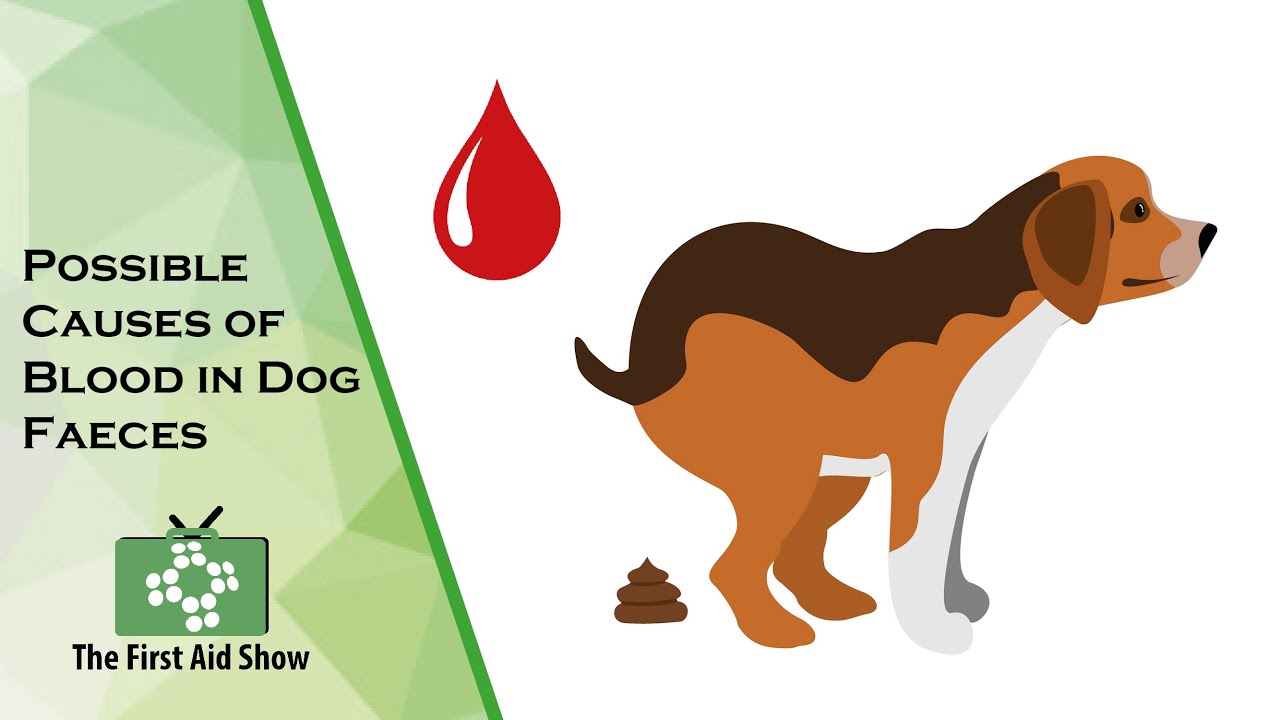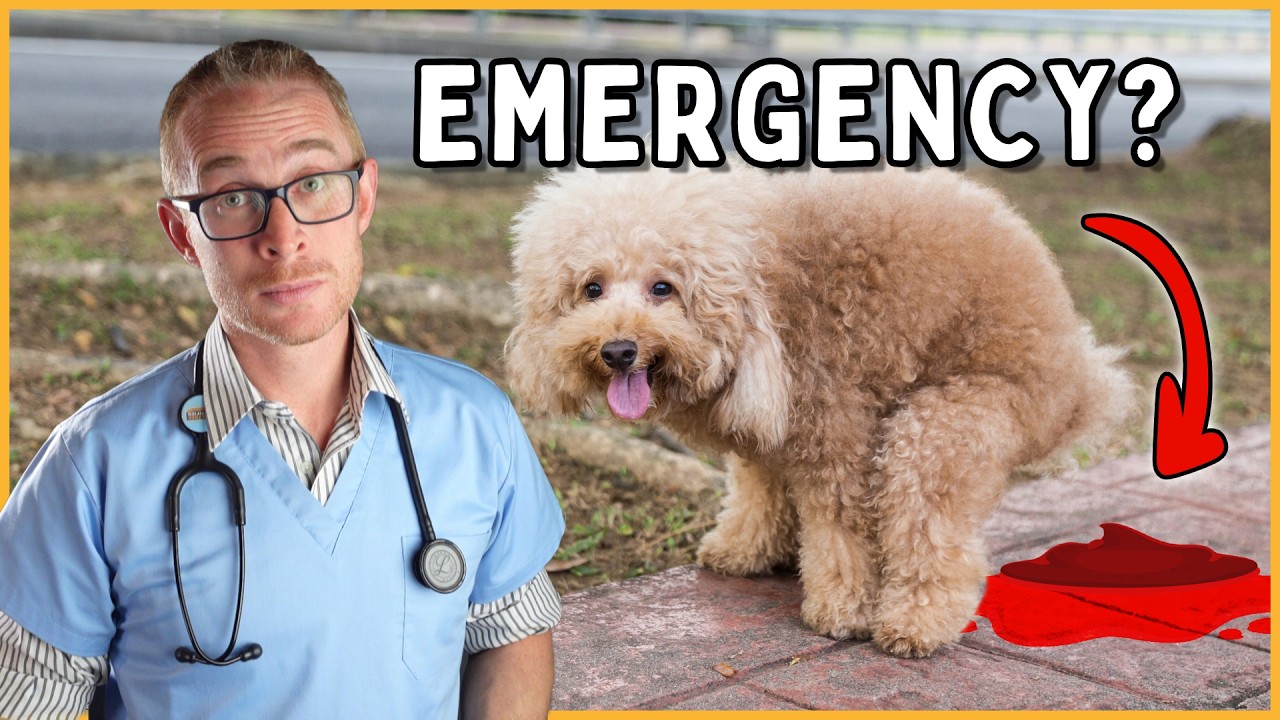When you see your dog pooping blood, it can send you into a tailspin of panic and worry. It’s a terrifying sight, and understandably so! It’s vital to grasp the potential reasons behind this alarming symptom, as they can range from something fairly harmless to a severe health crisis. Knowing when to act can be the difference between saving your furry friend and waiting too long. So, let’s dive into what’s happening when your dog poops blood.
Understanding the Concern: Why Your Dog Poops Blood
Bloody dog poop isn’t just an inconvenience; it’s a red flag that shouldn’t be ignored. Blood in your dog’s stool typically indicates something is amiss within their gastrointestinal tract. While some reasons may be as simple as a dietary upset, others could signal just the tip of the iceberg regarding serious health issues. The critical thing is to keep calm and pay attention to any accompanying symptoms.
Every dog owner needs to recognize the urgency of this situation. After all, our dogs can’t tell us what’s wrong, so it falls on us to be their voice. By quickly determining the cause, you and your vet can address the issue effectively, ensuring your four-legged friend can get back to being their playful self.
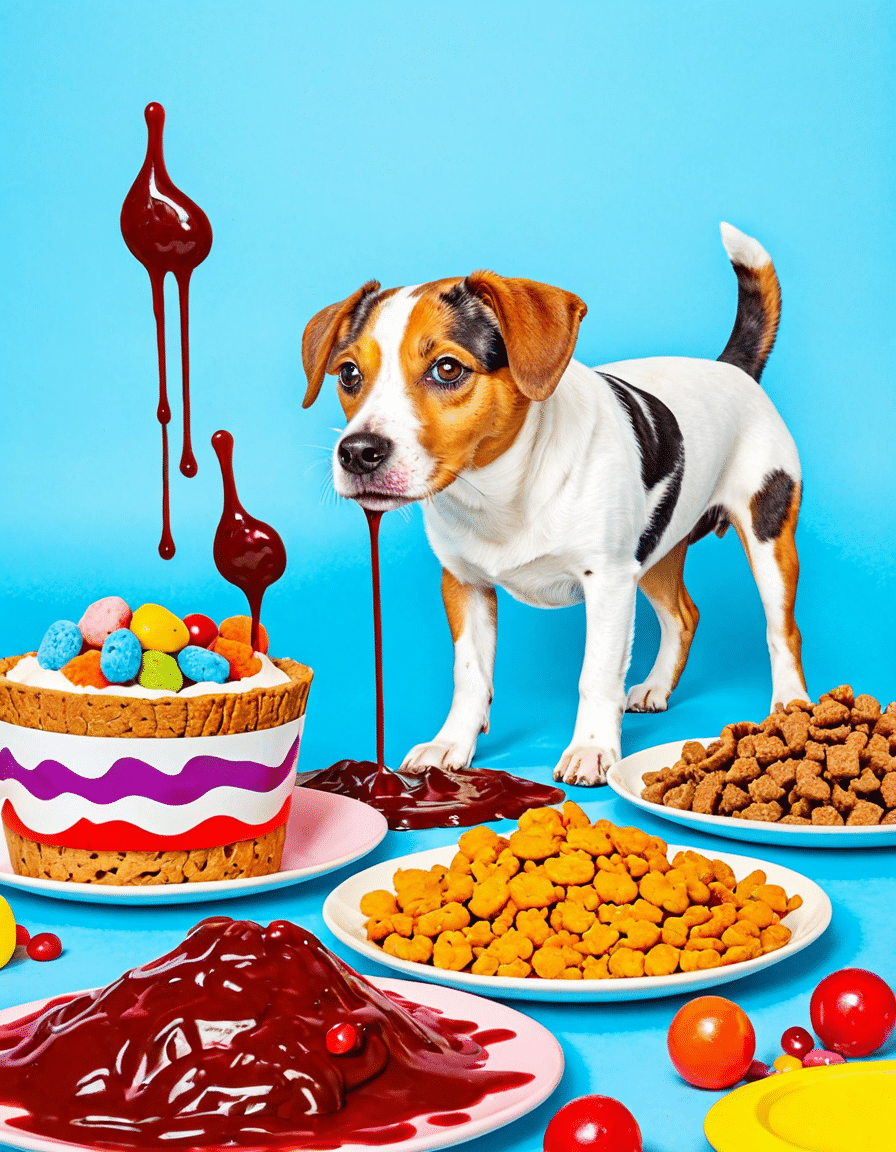
Top 5 Reasons Why Your Dog Poops Blood
One significant reason your dog might poop blood is a gastrointestinal infection. Bacterial infections, like Salmonella or Parvovirus, can wreak havoc on a dog’s digestive system, resulting in bloody stool. It may also present with symptoms like vomiting or lethargy, making quick veterinary attention essential. If your dog seems sluggish and is displaying these signs, don’t wait!
A sudden shift in your dog’s diet can lead to bloody dog poop, as their gut flora may struggle to keep up. Rich, fatty foods or ingredients your dog isn’t used to can irritate their digestive tract. Even a well-known brand like Blue Buffalo could cause an upset if your dog isn’t used to that specific formula. Watch for any signs of discomfort or changes in their bathroom habits.
Your dog might be dealing with parasites like roundworms or hookworms, which can cause diarrhea stained with blood. Regular vet check-ups and stool analyses can help keep these pesky invaders at bay. Don’t forget that products like Heartgard and NexGard play essential roles in your dog’s health to prevent these issues.
If your dog suffers from IBD, it can result in inflammation of their gastrointestinal tract, which leads to bloody stool. This condition usually requires dietary management and anti-inflammatory medications as prescribed by a veterinarian. Additionally, dogs with IBD may experience weight loss and vomiting, necessitating close observation and follow-up with your vet.
Dogs are notorious for their curious eating habits, sometimes munching on items that could harm them. If your dog has swallowed something like a toy or a toxic substance, this may lead to obstructions or lacerations in the gastrointestinal tract, causing blood in the stool. If you suspect your dog has eaten something they shouldn’t, seek veterinary help immediately.
Recognizing Additional Symptoms
When your dog poops blood, it’s essential to view the whole picture. Accompanying signs can provide invaluable clues about what’s going on. Keep an eye out for:
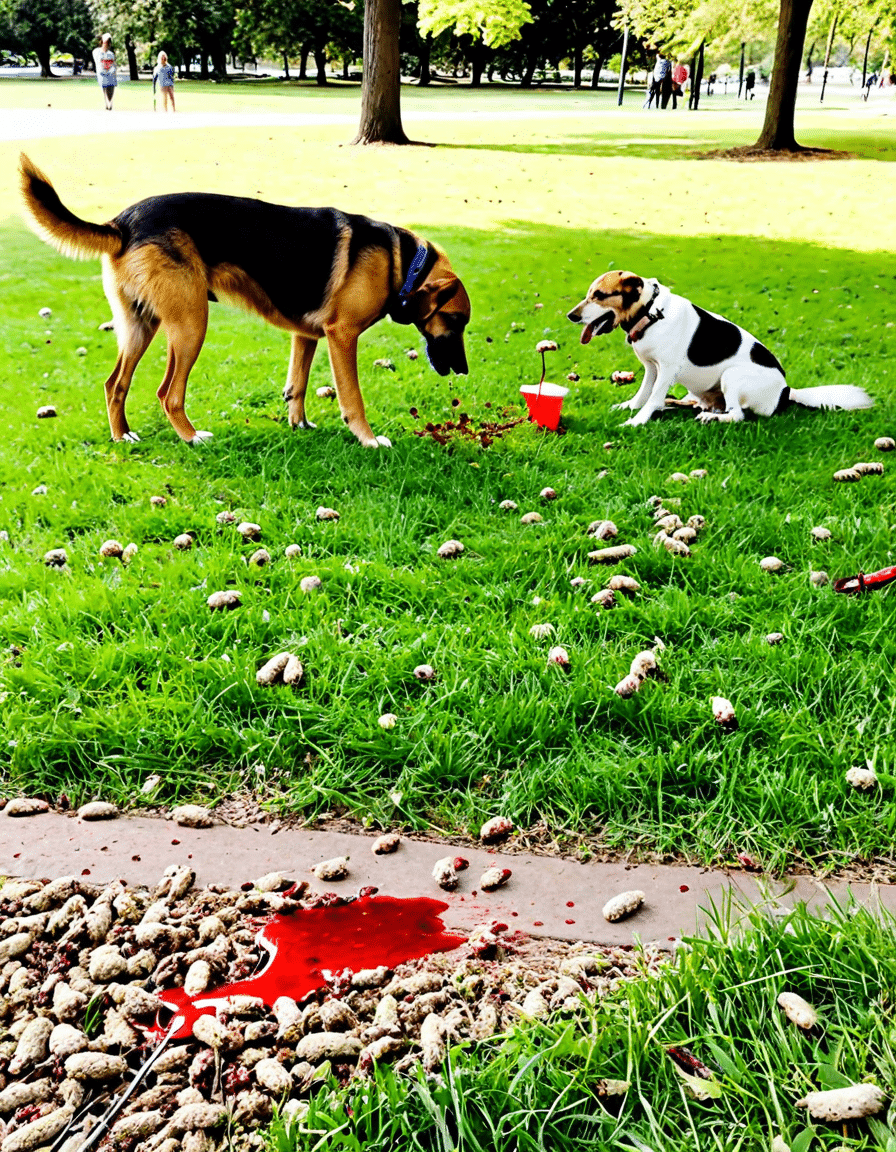
When to Seek Emergency Care
If your dog displays any of the following along with bloody stool, don’t hesitate to rush to the vet:
It might be tempting to laugh at a gagging cat meme to lighten the mood, but health concerns with your dog require immediate attention. Blood in feces is no laughing matter!
Diagnostic Approaches and Treatments
Once you get to the vet, they’ll likely conduct a battery of tests to figure out what’s behind the bloody poop. Diagnostic methods may include:
Your dog’s treatment will hinge on the exact diagnosis. Common responses may involve medications, dietary shifts, or even surgeries in more severe cases.
Innovative Wrap-Up
Seeing your dog poop blood is undeniably distressing. However, knowing what could be causing this issue empowers you as a responsible pet parent. Recognizing not just the symptom but also any additional signs can significantly affect your dog’s recovery chances. Plus, sticking to preventative measures, like routine vet check-ups and consistent diet, helps reduce risks. Remember, acting swiftly when something’s off can make all the difference. Your furry buddy deserves the best and timely care to get back to their joyful, tail-wagging self!
If you ever find yourself in a bind about pet safety or care, consider looking into resources that provide additional insights, such as those that focus on pet-safe products like weed killer safe With Pets, or essentials like a dog booster car seat. Your dog’s health and happiness should always be a top priority!
Dog Poops Blood: What You Need to Know
When you spot blood in your dog’s poop, it can send chills down your spine. The sight of those crimson drops isn’t just for horror films like Hannibal, where blood signifies fear; it’s a true medical emergency for your furry friend. Blood in feces can signify serious health issues—everything from dietary indiscretion to more severe concerns like infections or even tumors. It’s essential to stay calm and observe closely what else might be going on with your pup.
What Could It Mean?
You might be wondering what exactly could cause your dog to poop blood. Common culprits include intestinal worms, which are as alarming as they sound, and ingestion of foreign objects (think your classic case of a miniature beagle dog eating something they shouldn’t). Interestingly, did you know that just like humans, dogs can have gastrointestinal issues that may worsen with stress? If you think about it, late-night adventures to those sketchy late night bars can lead to unexpected situations, causing tummy troubles.
Facts That May Surprise You
Did you know dogs who eat a diet filled with low-quality ingredients can develop bowel problems? It’s baffling how something as simple as nutrition influences their health! Furthermore, while it might seem odd, a cat leukemia Lays down by water bowl often indicates more than a mere nap; it can be a sign of underlying health issues. The connection? Pets can exhibit odd behaviors when they’re not feeling their best, similar to how we might retire to our beds when sick.
Lastly, keep in mind, just like the stunning fountains at the Las Vegas bellagio can take your breath away, a sudden change in your dog’s health can be equally shocking. If you notice any blood in your dog’s stool, prompt attention is vital. Remember, prevention is key: keep an eye on what your dog hauls home during their escapades, and it might save you from a health scare down the line!
